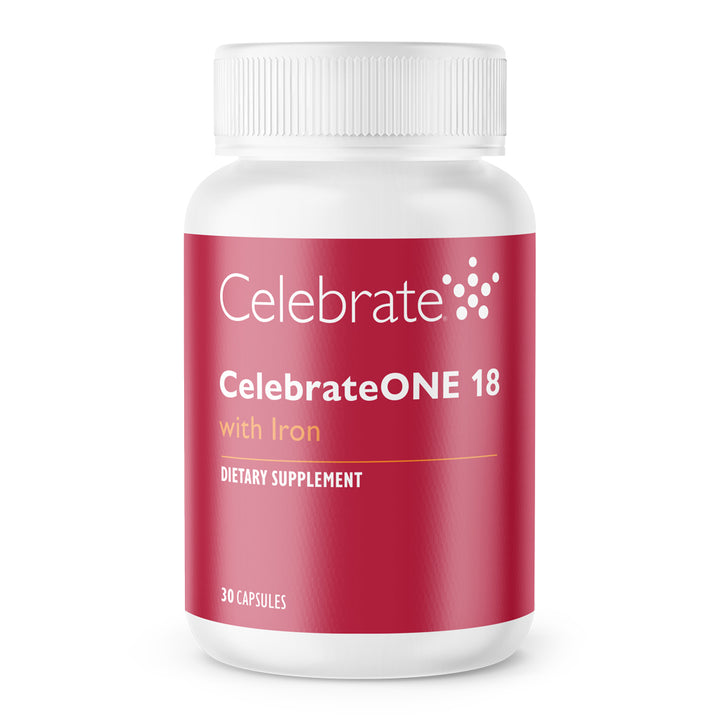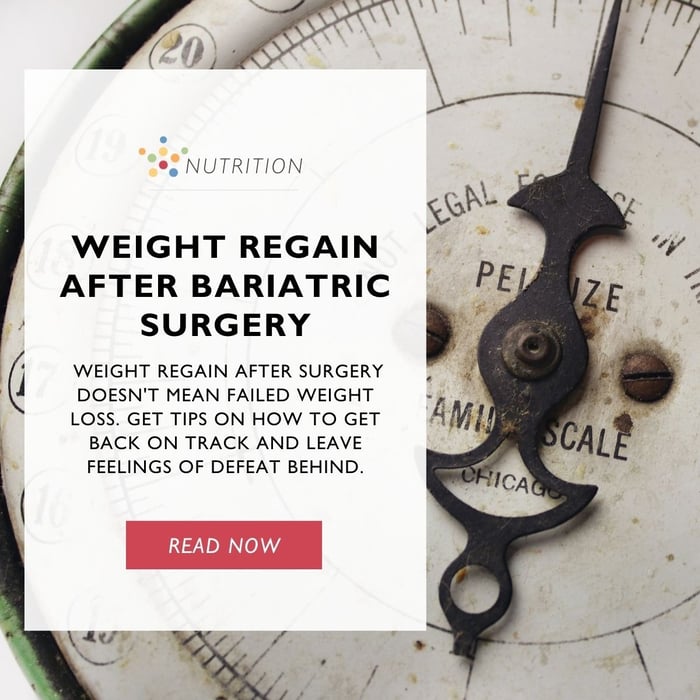How Dietary and Vitamin Needs are Influenced After Bariatric Surgery
 Taylor Brodie, MS, RDN, LD
Lifestyle
Taylor Brodie, MS, RDN, LD
Lifestyle
May 10th, 2023

Nutrient absorption happens throughout the entire digestive tract. While more than 90% of food is digested and absorbed before the proximal to mid-jejunum, various nutrients are (or can) be absorbed in the stomach and large intestine. The digestive system is an interconnected network requiring secretions from ancillary organs like the gallbladder, pancreas, and salivary glands for proper absorption. Various malabsorptive procedures (RNY, BPD/DS, SADI-S) bypass various sections of the small intestine, the major source of nutrient absorption.
Changes to the Stomach
Vertical Sleeve Gastrectomy Surgery limits the stomach to a volume of 150-200mL while a pouch created in a Roux-en-Y Gastric Bypass is about 30mL. While restricting gastric volume was thought to be the main driver of weight loss, the particular removal of different sections also have hormonal effects. VSG removes 80% of the stomach, including the fundus and greater curvature. This also removes the cells that produce ghrelin and leptin. This contrasts the restrictive nature of Adjustable Gastric Banding, which does not surgically remove these cells. The resected stomach may also have a role in increasing gastric emptying, glucose/insulin response, and hormone regulation, but more is truly needed to understand these effects. These differences may contribute to the reasons why weight loss, hunger and satiety cues, and metabolic changes after VSG are more similar to that of a RNY rather than AGB.
Bypassing the Site of Absorption
Procedures like the Adjustable Gastric Band and Vertical Sleeve Gastrectomy do not alter the GI system posterior to the stomach, therefore, pancreatic secretions are able to continue to resume its path along the entirety of the small intestine. However, in malabsorptive procedures like Roux-en-Y, Biliopancreatic Diversion with or without Duodenal Switch, and Single Anastomosis Duodenal-Ileal Bypass with Sleeve Gastrectomy, segments of the small intestine are relocated to create two different pathways/channels. The limb in which gastric acids are carried is called the alimentary or Roux limb. After a RNY, the Roux limb typically between 50-150cm long. While food and secretions do pass through, the absence of biliary and pancreatic secretions significantly stunts absorption. This “bypassed” segment of the GI tract is no longer utilized for absorption but rather as a path to transport biliopancreatic secretions. After the BPD/DS, about 75% of the small intestine is bypassed.
The biliopancreatic limb reconnects to the alimentary limb to create the common channel. This shorter segment of the GI tract is where food interacts with the digestive secretions and allows for absorption.
Gastric Emptying, Transit Time and Dumping Syndrome
The rate of transit of chyme throughout the gastrointestinal tract is also influenced after bariatric surgery. Gastric emptying accelerates in both liquids and solids after VSG, but is likely influenced by how much the stomach is resected. Intestinal transit time is also faster after VSG, but to a lesser extent than after RNY. Even though intestines stay intact after VSG, the quickened rate to which it progresses through could limit absorption and be yet another reason why micronutrient deficiencies are similar among both procedures. Gastric emptying of liquids has been observed after RNY, but results have varied for solid foods. After moving through the stomach, intestinal transit time is quickened, again to a lesser extent in VSG compared to RNY.
The gastric changes not only influence exposure of nutrients to the small intestine, but change hormone regulation in response. Faster gastric emptying is thought to promote GLP-1 release, while intestinal transit time alters insulin and glucagon homeostasis to manage glucose homeostasis. Lastly, the ileal break, which senses food in the jejunum and duodenum, act as a negative feedback loop to delay gastric emptying and decrease hunger. While these mechanisms are sure to support weight loss and glucose homeostasis, in extremes it can also increase risk of hypoglycemia and dumping syndrome.
A hypertonic solution in the jejunum can cause distention that result in unpleasant gastrointestinal and vasomotor symptoms of dumping syndrome early after eating a meal high in simple carbohydrate. Drinking with meals can contribute to this hypertonic solution as well. Late dumping, or reactive hypoglycemia can occur 1-3 hours later due to the rapid insulin response of that high-sugar meal. If left unmanaged, these complications can have significant consequences, as fear of dumping symptoms may cause decreased intake of energy and much needed nutrients. To ensure adequate intake and avoid deficiencies, those experiencing symptoms should be counseled on various dietary guidelines to prevent and manage dumping syndrome. If dietary changes are ineffective, pharmacological and surgical approaches may be needed.

Nutrient Deficiencies After Bariatric Surgery
There are various nutrition concerns after weight loss surgery, but nutrient deficiencies are the most common. In many cases, these can be properly prevented and managed with adequate diet and/or supplementation. Anatomical, physiological, and dietary changes increase one’s risk of micronutrient deficiencies after bariatric surgery. In addition to the decreased intake and malabsorptive anatomy, other factors such as decreased gastric secretions, food intolerances, and nausea and vomiting can also contribute. Incidence of deficiency is dependent on the nutrient and type of surgery.
Identifying Deficiencies
Anthropometric Analysis
Measuring weight can provide important information, but anthropometric analysis that distinguishes between adipose tissue, skeletal muscle mass, and fluid retention can provide information on protein status. While reductions in skeletal or lean muscle mass can be expected, excess loss can be a result of protein-calorie malnutrition that may require supplementation.
Laboratory Assessment
Laboratory assays can provide accurate and reliable results for micronutrient levels. Due to the high pre- and post-op risk of micronutrient deficiencies, regular monitoring of lab values is recommended after bariatric surgery. It is recommended that individuals abstain from having their supplements about eight hours prior to the lab draw for best accuracy. It is widely thought that supplemental biotin can influence certain laboratory assessments.
Clinical Assessment
Clinical analysis, including physical exams are an integral part of a nutrition assessment for nutrient deficiencies. The Nutrition Focused Physical Exam (NFPE) is a standardized methods to evaluate clinical signs of the skin, nails, hair, eyes, and mucus membranes can provide clues for nutrient deficiencies. Almost all vitamins and mineral deficiencies are associated with clinical signs that can be observed with physical exams. Individuals trained in NFPE also evaluate changes in muscle mass that inform protein-calorie malnutrition, including those of the overweight population.
Dietary Assessment
Evaluating dietary intake is quick and easy way to identify certain nutrient deficiencies. However, it is not entirely reliable due to over- and underreporting. Nevertheless, having general idea of foods absent can provide valuable information about the general nutrient intake of an individual.
Environmental Considerations
Other factors that influence and individuals’ ability to eat healthy foods or take their recommended dietary supplements should always be put into consideration when evaluating for micronutrient deficiencies.
References:
Youdim A. Bariatric Surgery. Merck Manual Professional Version. Published August 2021. Accessed April 17, 2022. https://www.merckmanuals.com/professional/nutritional-disorders/obesity-and-the-metabolic-syndrome/bariatric-surgery
Stefater MA, Wilson-Pé Rez HE, Chambers AP, Sandoval DA, Seeley RJ. All Bariatric Surgeries Are Not Created Equal: Insights from Mechanistic Comparisons. Published online 2012. doi:10.1210/er.2011-1044
Weight Management Dietetic Practice Group. Pocket Guide to Bariatric Surgery. Third Edition. (Isom KA, Majumdar MC, eds.).; 2022
IFSO. Gastric Bypass Surgery. Accessed April 12, 2022. https://www.ifso.com/roux-en-y-gastric-bypass/
Sawaya RA, Jaffe J, Friedenberg L, Friedenberg FK. Vitamin, Mineral, and Drug Absorption Following Bariatric Surgery. Curr Drug Metab. 2012;13(9):1345. doi:10.2174/138920012803341339
American Society of Metabolic and Bariatric Surgery Public Education Committee. Bariatric Surgery Procedures. Published April 2021. Accessed March 27, 2022. https://asmbs.org/patients/bariatric-surgery-procedures#top
Quercia I, Dutia R, Kotler DP, Belsley S, Laferrère B. Gastrointestinal changes after bariatric surgery. Diabetes Metab. 2013;40(2):1-16. doi:10.1016/j.diabet.2013.11.003
Camastra S, Palumbo M, Santini F. Nutrients handling after bariatric surgery, the role of gastrointestinal adaptation. Eating and Weight Disorders - Studies on Anorexia, Bulimia and Obesity. Published online 2021:1-13. doi:10.1007/s40519-021-01194-5
Ciobârcă D, Florinela Cătoi A, Copăescu C, Miere D, Cris G. Bariatric Surgery in Obesity: Effects on Gut Microbiota and Micronutrient Status. Nutrients. 2020;12(235):1-27. doi:10.3390/nu12010235
Scarpellini E, Arts J, Karamanolis G, et al. International consensus on the diagnosis and management of dumping syndrome. Nat Rev Endocrinol. 2020;16(8):448-466. doi:10.1038/s41574-020-0357-5
CelebrateONE 18 Once Daily Bariatric Multivitamin with Iron Capsules

$16.99
CelebrateOne 18 Once Daily Bariatric Multivitamin with Iron capsules simplify your daily routine with a powerful, one a day multivitamin, formulated to meet the unique needs of weight loss surgery patients. This single dose bariatric multivitamin is packed with essential… read more



